Anticipated Delays in Screening
Employers are experiencing noticeable delays in screening candidates because of the inability to receive information from courts and educational institutions owing to their temporary closure. Several people who managed to clear interviews in this pandemic are waiting to join their organisations because their screening reports are still pending.COVID-19 has made educational verification a tough nut to crack in a few countries in the APAC region. They demand physical visits to ascertain the credibility of the qualifications mentioned by the candidate. Employers are now forced to make the best decisions possible with whatever information is available in digitised records. Large employers are seen to use automated methods for employment verification. Employment verifications can proceed with minimal to no obstructions as long as the repositories holding employment records remain operational.
Drug Testing is Changing:
Pre-employment drug testing is becoming a tough nut to crack since COVID-19 began spreading. Employers are not able to perform drug screening as per conventional processes. In-person visits are not permitted in labs. You may also find candidates hesitant to visit busy public labs for testing. In regulated industries where drug testing cannot be forgone, there might not be other options than to plan for delays and reschedule your hiring process.
In a few other industries, alternative options exist. Several clinics offer specimen collection services with text-ahead services – candidates can book appointments online. They will be reached by the lab technicians whenever they are available. The best part is that candidates can remain self-isolated in their cars until being reached rather than in the waiting room. Some employers also choose alternative ways like mobile collection services that reach out to the candidates directly at their homes.
Oral fluid testing is also gaining attention. A quick swab can help you test the candidate for recent usage of cocaine, opiates, cannabinoids, and other narcotic drugs. Candidates can swab their mouths while the observer remains at a distance safely. Trained observers are even assisting candidates in the oral fluid collection through video conferencing apps to collect the oral fluid correctly, seal it properly, and deliver it to the labs.
Post-employment Background Screening – a Viable Option?
Employers are recently conducting a background check after recruiting employees into the organisation. Yes, you read that right! They choose to hire based on whatever information is available to them and opt to postpone background screening when all courts and educational institutions are open to verifying records.
While post-hire background checks on employees look viable, employers should remain aware of the risk they may face by making wrong hires – spending time training new hires only to fire them due to findings obtained by screening them.
As an employer, you may want to check your background screening disclosures provided to employees and ensure an option regarding future background checks that they have assented to. Even then, it is always better to notify employees and receive consent from them whenever you want to perform a screening check.
With background checks for employment being crucial in the recruitment process, neglecting it will bring serious repercussions. Companies will have to look for more viable and compliant options to meet this need while selecting background check companies. You must choose a background checker who can adapt to the circumstances and tweak their solutions to support your talent recruitment process.
Who is CRI Group™?
Based in London, CRI Group™ works with companies across the Americas, Europe, Africa, Middle East and Asia-Pacific as a one-stop international Risk Management, Employee Background Screening, Business Intelligence, Due Diligence and other professional Investigative Research solutions provider. We have the largest proprietary network of background-screening analysts and investigators across the Middle East and Asia. Our global presence ensures that no matter how international your operations are we have the network needed to provide you with all you need, wherever you happen to be. CRI Group™ also holds BS 102000:2013 and BS 7858:2012 Certifications, is an HRO certified provider and partner with Oracle.



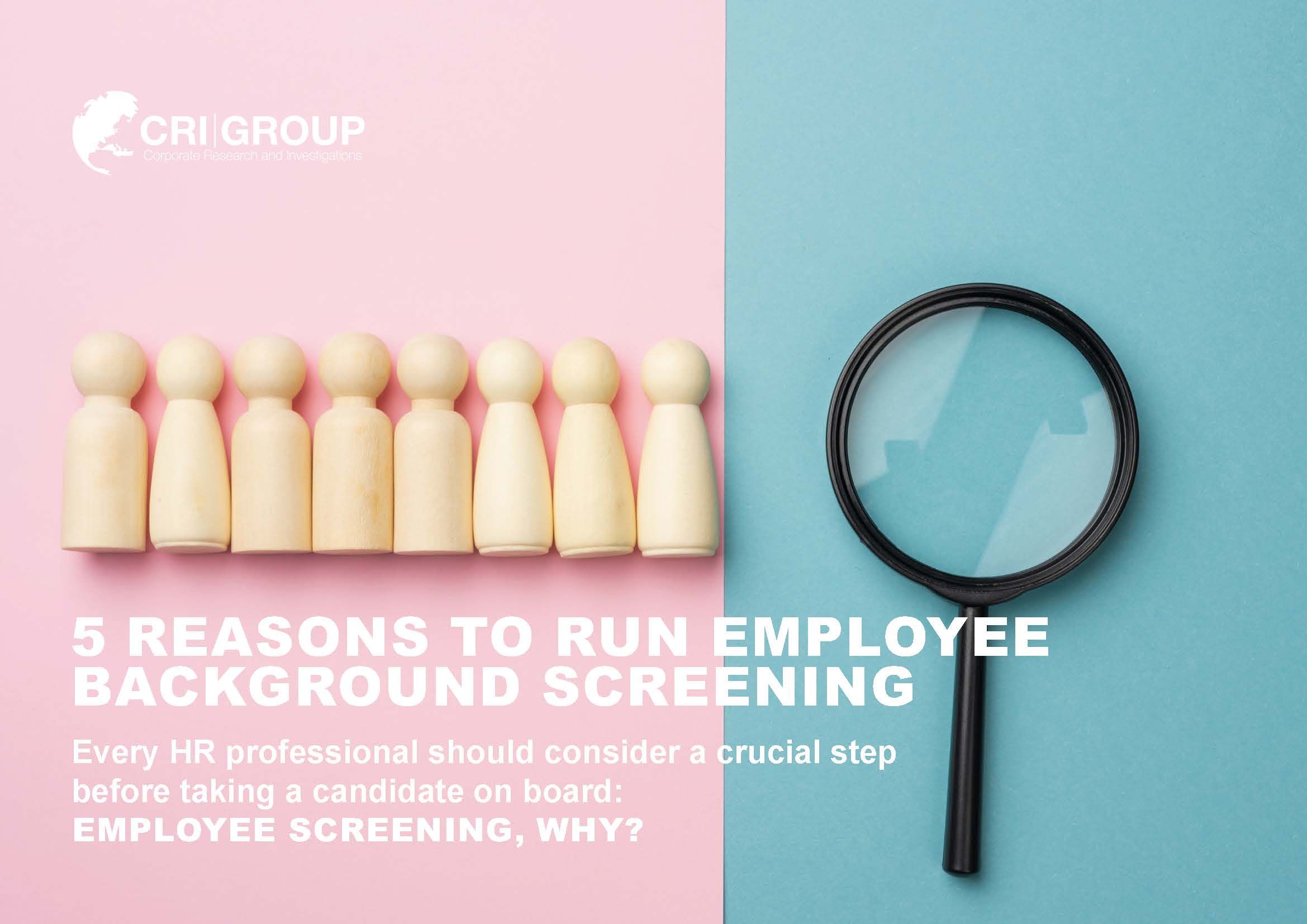
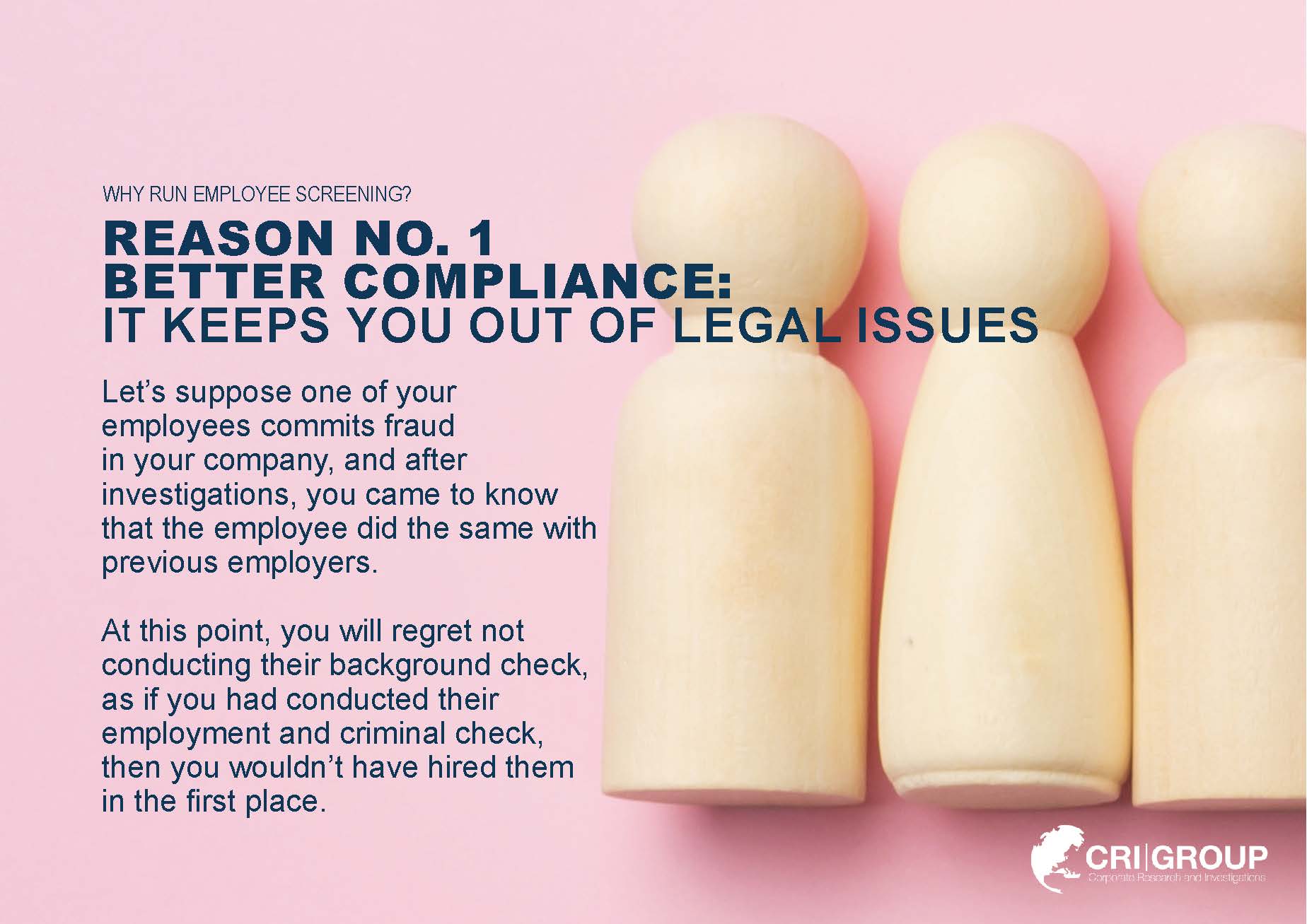
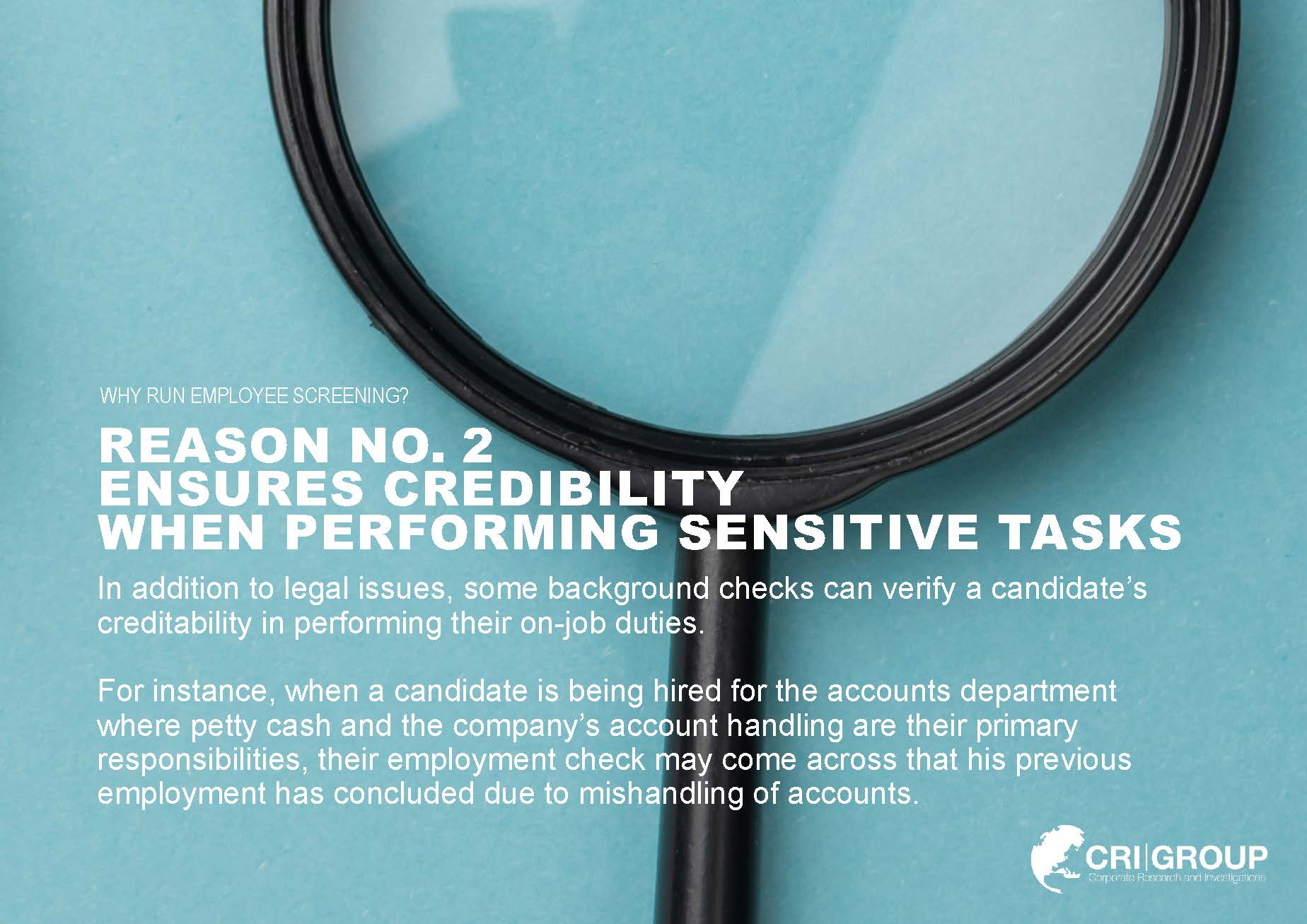
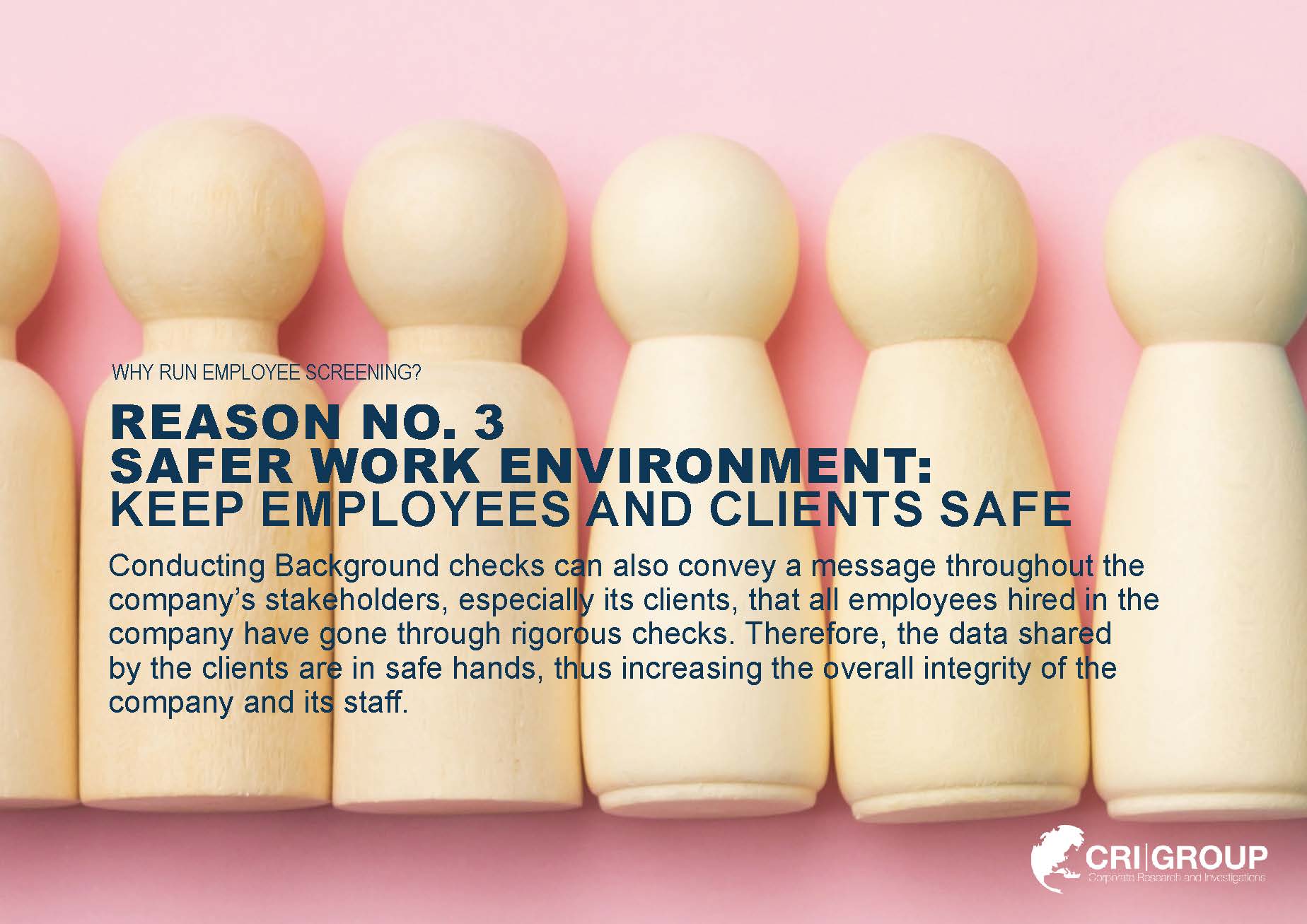
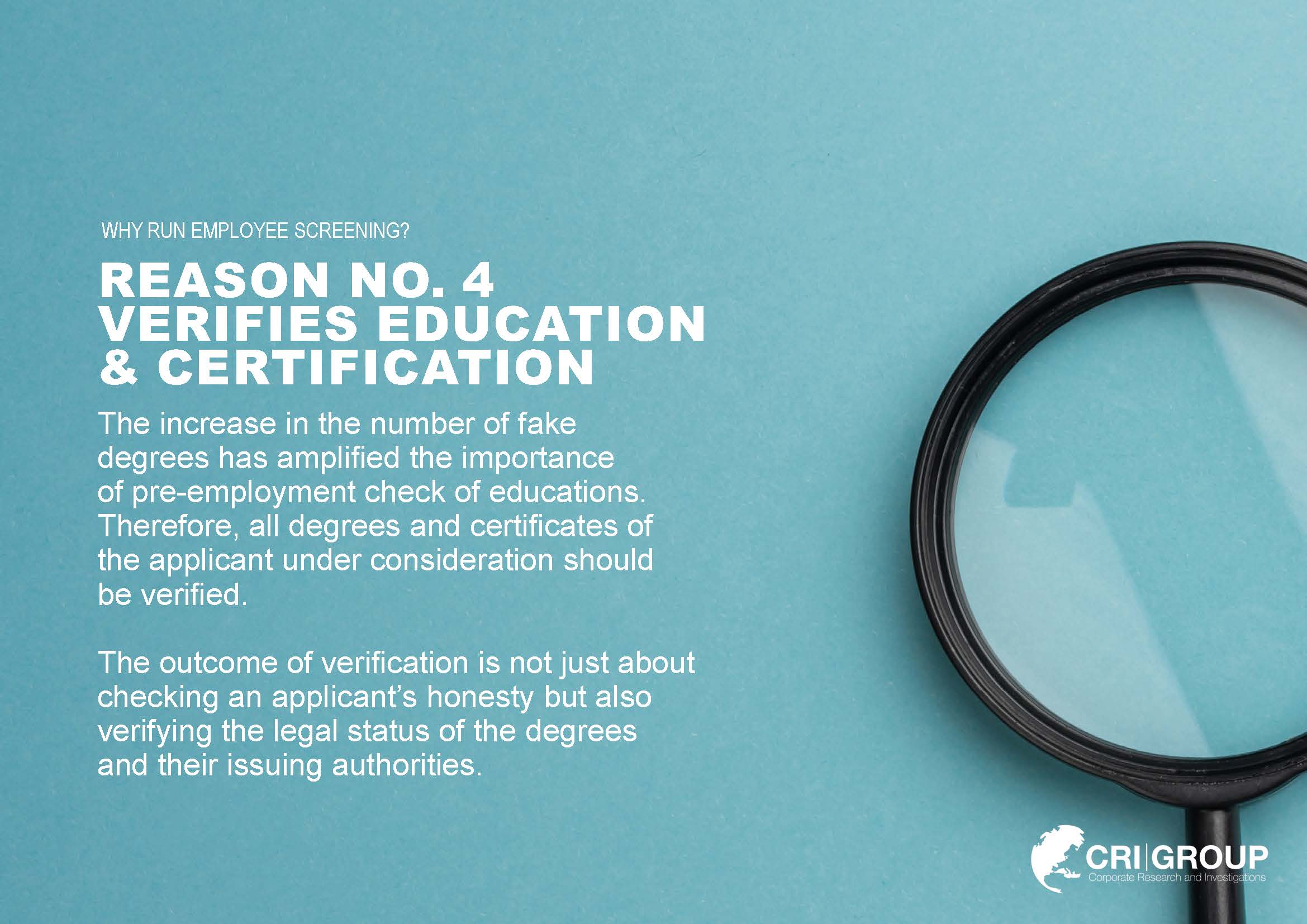
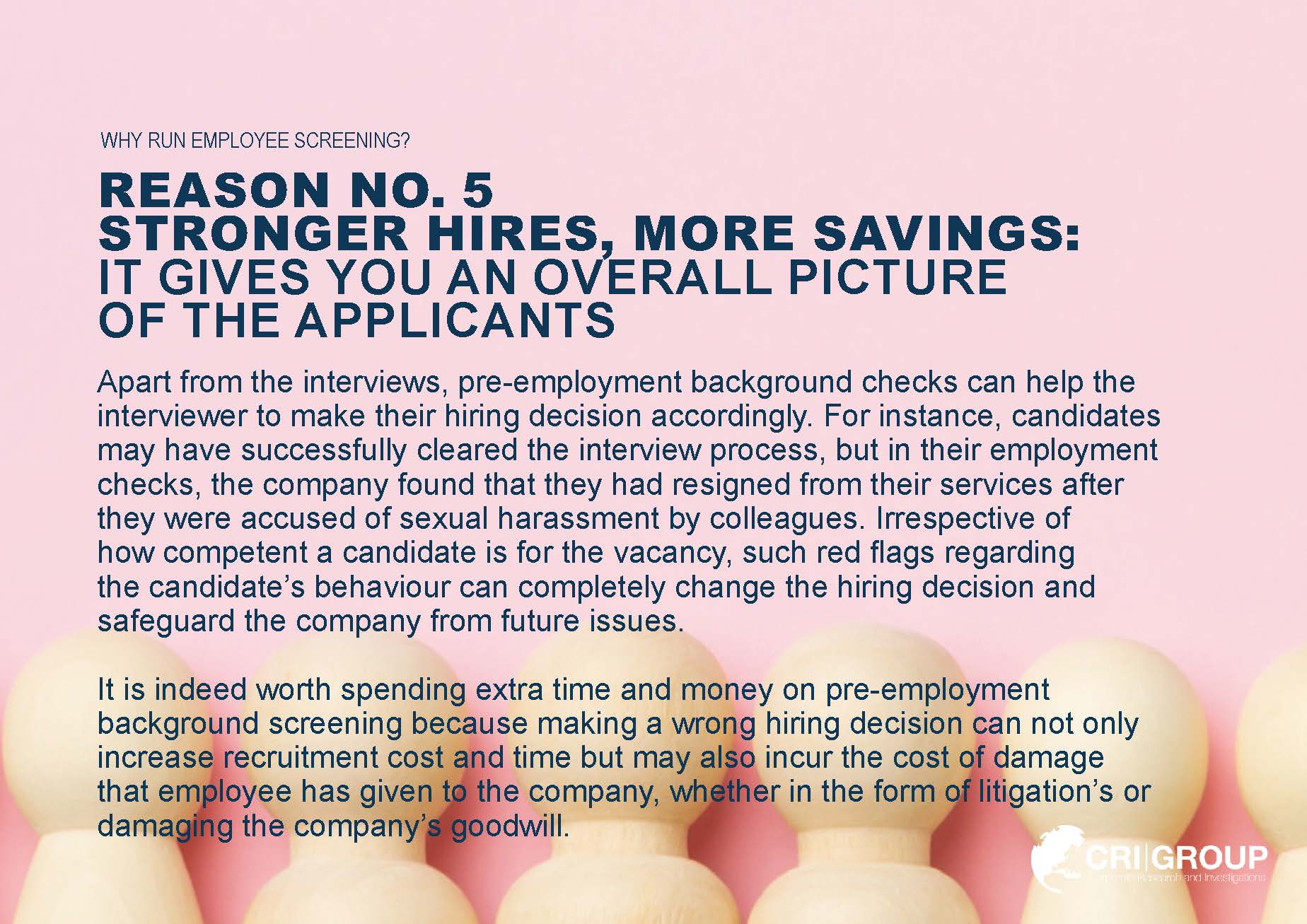
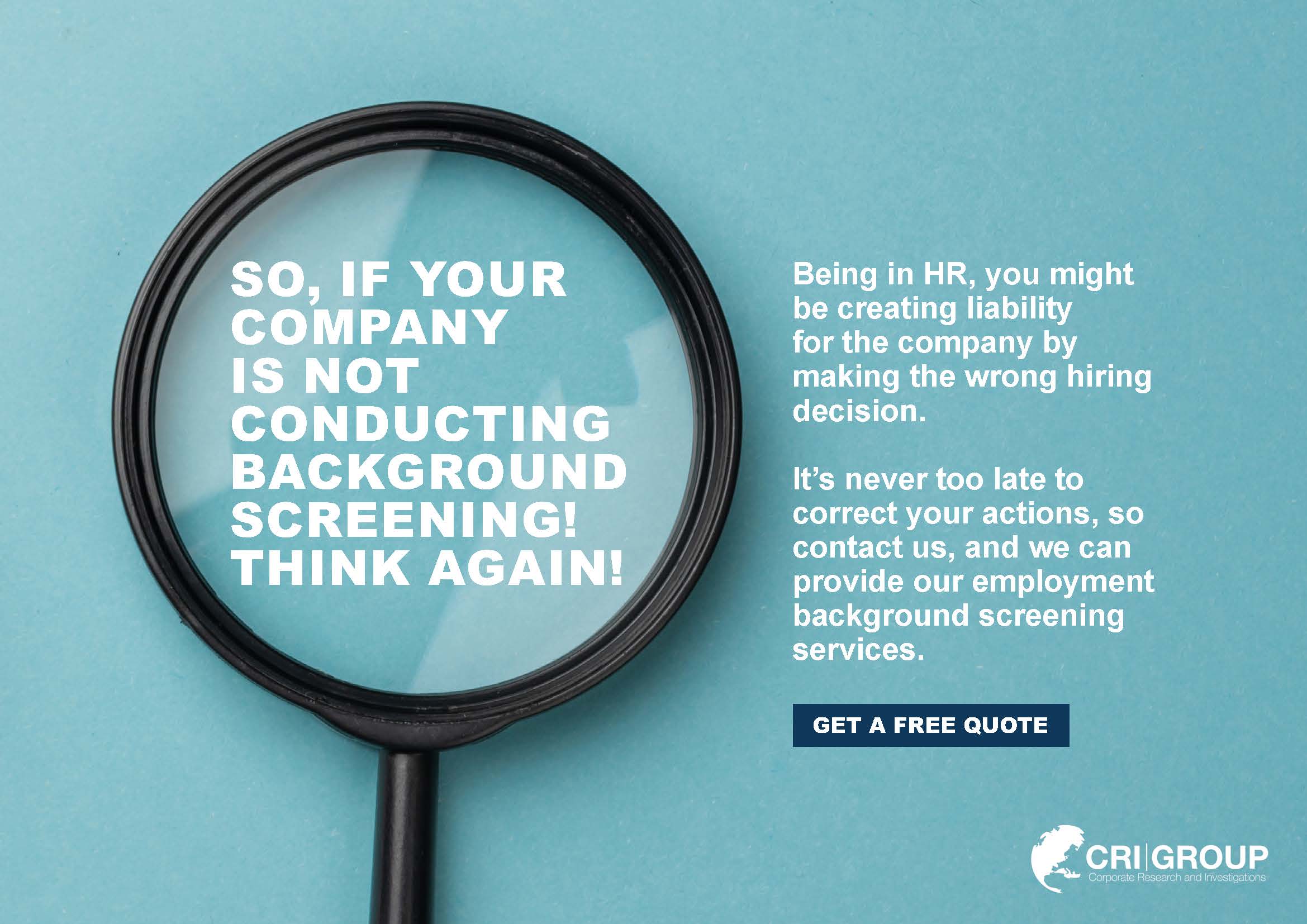

CONTACT US
Headquarter: +44 7588 454959
Local: +971 800 274552
Email: info@crigroup.com
Headquarter: 454959 7588 44
Local: 274552 800 971
Email: info@crigroup.com
NEWSLETTER SUBSCRIPTION